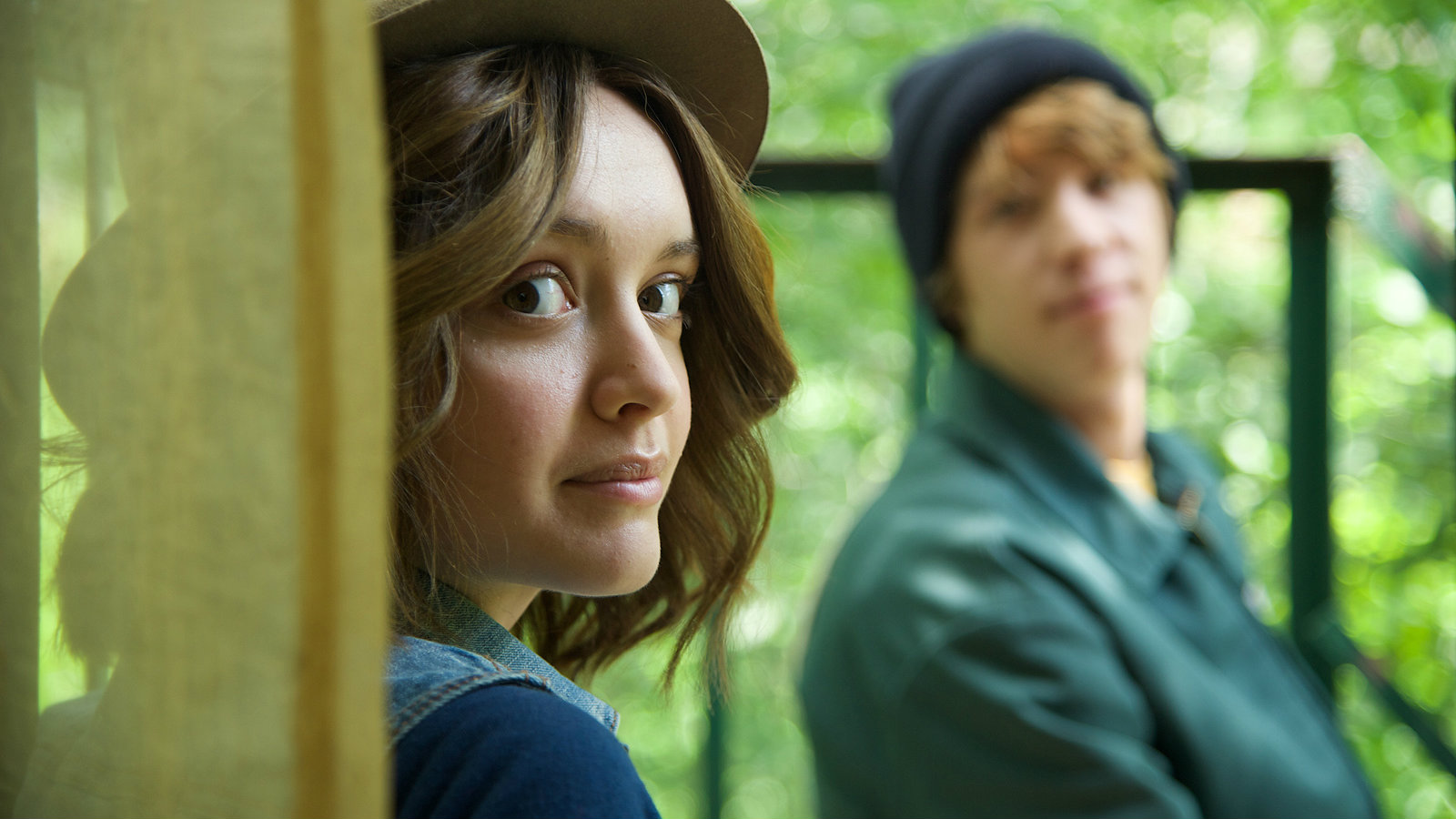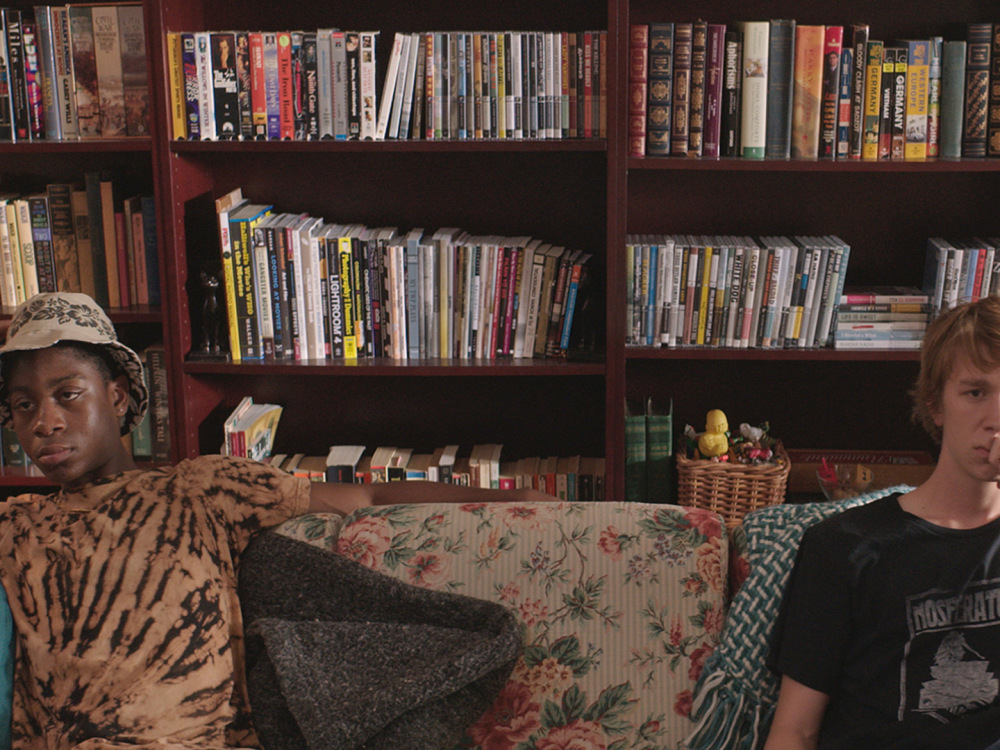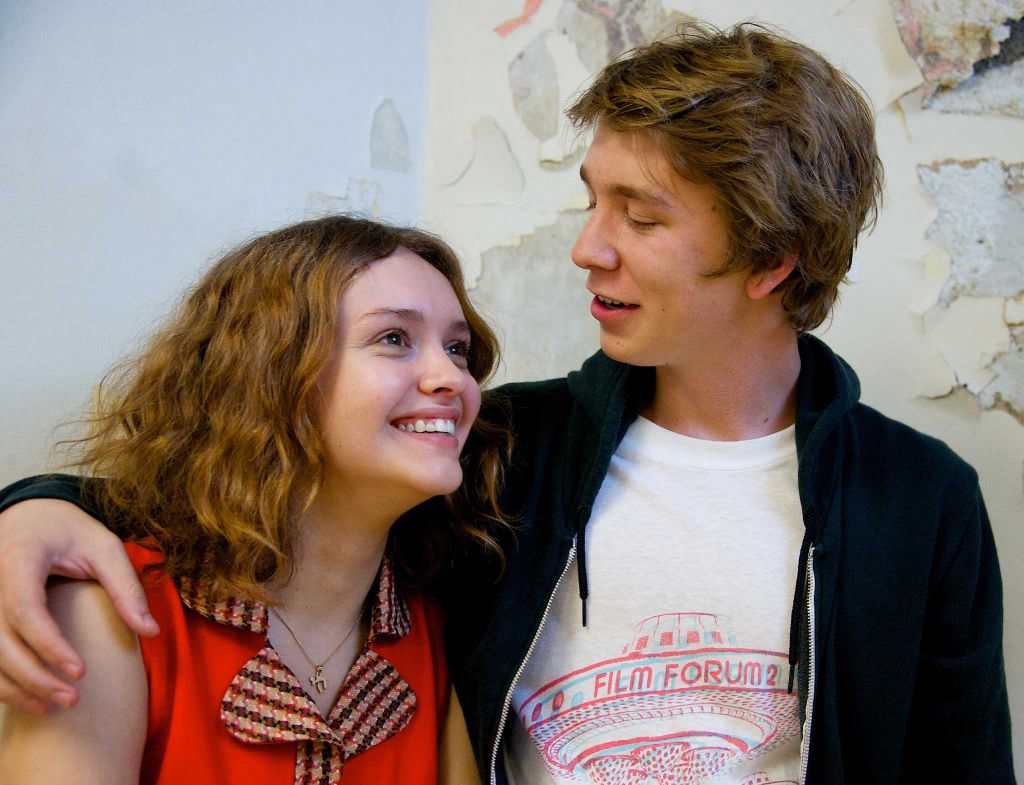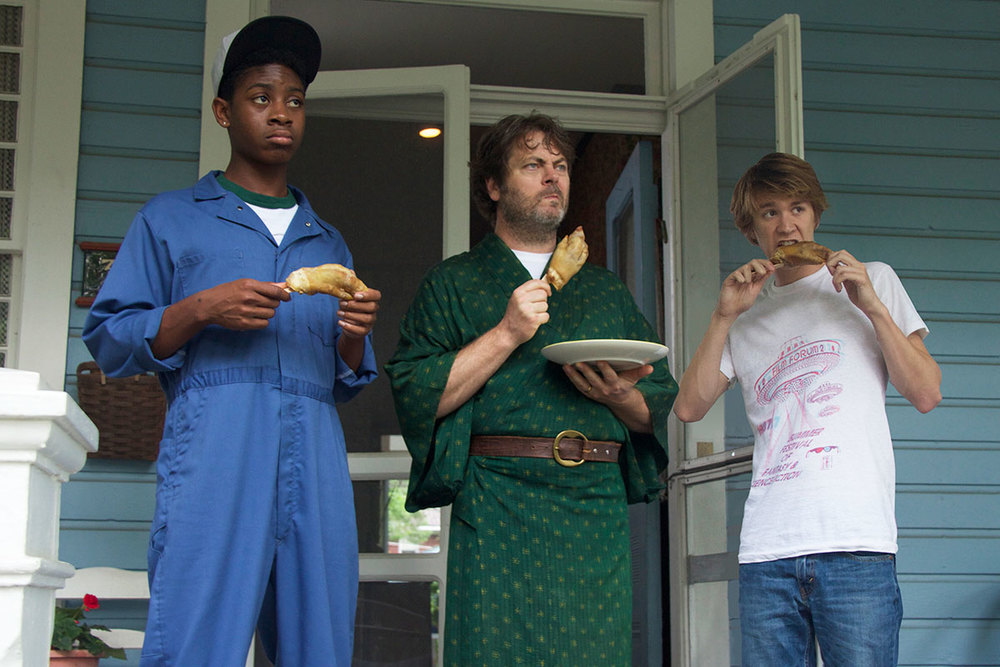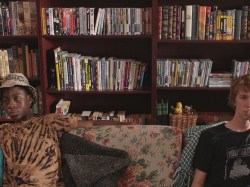 Anne Marie Fox / Fox Searchlight Pictures
Anne Marie Fox / Fox Searchlight PicturesMe and Earl and the Dying Girl is a beautiful, touching movie that, at times, might brush against what would be termed “the transcendent,” though unfortunately that term has become a cliché. When described aloud, the film sounds eerily similar to 2014’s The Fault in Our Stars, which means that it’s also uniquely fragile, easy for world-weary moviegoers to dismiss.
You shouldn’t.
Greg (Thomas Mann) is the kind of high-schooler who blends seamlessly into whatever crowd he happens to be phasing through—simultaneously tolerated by everyone and close to pretty much no one besides his friend Earl (RJ Cyler). Greg’s mom (Connie Britton), seemingly intent on disrupting the careful sociostasis Greg has managed to cultivate, forces him to spend an afternoon with Rachel (Olivia Cooke), and old friend of his who’s recently been diagnosed with leukemia.
The movie unfolds directly from these premises, with no weird twists or international globe-trotting to speak of. No revelations, no grand reveals, no awkward-but-intimate losings of virginities. Me and Earl is content to zoom in on what the lives of these three kids actually looks like: universal self-deprecation, insecurity, aimlessness, apathy toward an increasingly-unsure future.
But the film never collapses into just an artful rebuttal of The Fault in Our Stars, which would be both easy and maybe kind of viscerally satisfying. It’s more like Me and Earl exists despite Stars. Its real achievement is that it tackles a topic so impossibly sentimental and pathos-mired—and somehow doesn’t evaporate in a puff of its own self-importance.
Mann and Cooke’s performances are instrumental in keeping the film grounded in reality; however deep their friendship goes, the two do an exceptional job of retaining the awkwardness that permeates even the best-oiled teen friendships. Mann’s quips border on the too-clever on occasion, but he generally feels more like a clever teenager than a clever teenager who grew up to be a clever scriptwriter—and when the script lapses, Mann doesn’t.
What I worry will sink the film is its central conceit: that Greg and Earl are relentless film nerds, who have been cultivating a massive portfolio of home-made art-film parodies. Such titles include 2:58 Cowboy, Monorash, and The 400 Bros, to name just 3 of something like 30 titles. Snippets of these remakes add a welcome bit of levity to the movie—some comedy that’s not tempered by being self-consciously escapist from the looming threat of capital-l-Leukemia—but they’re also over-crafted, and cutesy, and push up against the boundary of wish-fulfillment that the movie so deftly avoids in most other respects.
And by “sink” above, I don’t mean “Cause it to be a failure.” This movie is likable and palatable and not very hard to ingest, and will likely be very successful. I guess I mean something closer to “Overshadow the really good bits.” Me and Earl, in many respects, mirrors Alexander Payne’s 2013 Nebraska. Both movies are shot in a spirit of homage and with a sense of debt to other directors—Nebraska mostly to Ozu, and Me and Earl to the many directors it references.
 Anne Marie Fox / Fox Searchlight Pictures
Anne Marie Fox / Fox Searchlight PicturesBut the similarity between the two films is that they’re not distillable to a couple key koans or maxims or whatever, where after reading it you might as well have not watched the movie at all. In the Iranian filmmaker Jafar Panahi's exceptional sort-of-movie This Is Not a Film, he says, “If I could tell you the movie, then there'd be no point in making it.”
It’s astonishing how few mainstream films, though, are indescribable. Mostly the “message” of these movies is something universally palatable, like “Friendship is good” or “Be true to yourself,” but the movie is just a vehicle for exciting sequences. (Consider the late Tomorrowland, whose message was ostensibly “Be optimistic and helpful,” but whose message was clearly subtended to the more pressing, practical goal of “Feel excited while watching this film.”)
The—and I would not use this term if there existed a better one—magic of movies like Nebraska and Me and Earl is that, if you tried to distill its message down to its essence, it ends up being something horrifically cliched, like “Value the time you get with others,” or “Family is important.” These concepts are both technically correct and creatively inert—but, when brought to life by a good script, by perfectly-cast actors, and by a competent director, they don’t feel stale.
This is what is tough about reviewing, actually: what do you do when a movie says something itself better than you could ever hope to say it? I can’t distill the film down to a message, because the really important, moving parts aren’t actions, bits of dialogue, or montages, but long takes, half-second beats, glances of insecurity that interrupt monologues.
So then I’m freed up to say two things:
First, go see this movie. Even if you end up disliking it, or, like Scott Tobias at The Dissolve, finding it wholly objectionable, you’ll still have been enriched by just responding to the movie.
And second, it’s possible to get why some people might not like it, even though some people definitely will. All the clever film references Me and Earl makes (and there are many) are likely an expression of genuine affection on the part of both the characters and filmmakers. But you get the sense while watching that the movie was purposely crafted to appeal to the average film buff’s sense of self-importance, like over-repeated in-jokes whose only goal is to reaffirm the listener that “You is smart, you is important.”
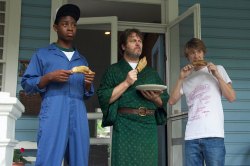 Anne Marie Fox / Fox Searchlight Pictures
Anne Marie Fox / Fox Searchlight PicturesI think the movie’s cleverness keeps it just on the right side of acceptable—but I also have a notoriously high threshold for this kind of high concept self-congratulatory reference-based cleverness (shoot our editor a tweet if you don’t believe me). If you see Me and Earl and the Dying Girl and disagree and think it’s just way too clever for its own good, I’m ok with that—but it’d also be a shame to miss that there’s something really special and important going on within the film, but only in its smallest, least showy bits, easily missed if you’re not receptive to it.
Caveat Spectator
Before we get to the content warning, technically, there’s a weird thing going on in the movie: Earl barely manages to become a full character in his own right, ending up being basically a supporting character in the story of Two Pretty White People Learning To Be Mature. I said above that I want to make a space for the movie to be received in the best possible light, but I don’t think there’s a front on which the movie’s treatment of Earl isn’t a problem. RJ Cyler does a great job, and imbues Earl with flashes of humanity when he’s not just commenting on girls’ breasts, but mostly it falls flat. Given that, the whole treatment of Earl and his family as basically being empovertied stereotypes of how hippie-ish white people imagine the “lower classes” to live is a big problem for the movie. That Earl’s name appears in the title is also problematic. That the movie, upon closure, seems to express no interest in Earl’s direction in life—his purpose of Greg’s Sidekick having been fulfilled—is also a big problem.
Basically, an insanely clumsy handling of a sensitive issue is big enough for me to consider it both a sticking point for the quality of the movie, and an objectionable element. And given that 90 percent of the people who see the movie are going to self-identify with Greg over Earl, the treatment moves from feeling clumsy to maybe even exploitative. (Again—I still like the movie. It’s because I like it so much that this issue bothers me.)
Characters swear infrequently, with one punctuation of f*** that stands out amongst the movie’s relatively low-tier offensive language. Earl has a habit of rudely commenting on girls’ appearance—one facet in particular. Two characters inadvertently get high.
Jackson Cuidon lives in New York City with his wife and dog, and would like to show you pictures of both sometime, if you have a minute. Follow his biennially updated Twitter account @jxscott.

